Mozambique: Chapo calls on teachers to continue dedicated to “construction of more prosperous ...
Interview: European Union delivers support for effective peace in Mozambique – DW

File photo: DW
The EU Ambassador to Mozambique says that €10 million is already being spent and that €50 million more will be transferred via various development projects in 2020.
European Union Ambassador to Mozambique António Sanchez-Benedito is optimistic about the peace process between the Mozambican government and the Mozambican National Resistance (Renamo), the country’s largest opposition party.
In an interview with DW Africa, the diplomat said that resources supporting the implementation of the process were already being applied.
The signing of the peace agreement in August 2019 drew from the European Union the promise of €60 million. Initially, 10 million euros would be spent on social and reconciliation projects in the areas hit by the attacks. Other resources should be gradually invested throughout 2020 for the demobilisation of Renamo men.
Ambassador Sanchez-Benedito confirmed that he received a list of 5,000 Renamo men waiting to be cantoned and said the attacks in the central region of Mozambique would not impede the implementation of the agreement, because the self-proclaimed “Military Junta” to whom the attacks are attributed is not a part in this process.

DW Africa: At what stage now are the funds announced on the day of the signing of the peace agreement?
António Sanchez-Benedito (ASB): This €60 million has to be transferred through different programs. Let’s start with the first part, which is 10 million for a series of interventions that are already underway and other resources that will follow in the coming years. It is also important to follow the process as you go along. There are entities and various partners which will implement the resources in different programs.
DW Africa: What programs have been identified for the € 10 million?
ASB: The €10 million is the first phase, which is already being implemented this year. Another 25 million is planned for next year (2020) and another 25 million will be implemented by the end of 2020. So we have a strategy designed at different stage
Of the initial €10 million, we are talking about various activities directly linked to a common fund that is now being implemented by the United Nations.
Then again, we are talking about direct support through NGOs working with residents and other partners to support people and communities affected by the conflict. Reconciliation activities are very important, but the process has started recently. We have to go with it.
There were 5,000 [soldiers] to be demobilised on the list delivered by Renamo’s leadership. This number is small. A climate of trust needs to be created in the process and we are only at the beginning.
DW Africa: What has already been done for the 5,000 people delivered by Renamo for demobilisation?
ASB: First, these people must be cantoned. This does not depend on the EU, but on both sides of this process, which have to move forward with confidence.
The EU is there to monitor and support, and will boost the whole process. Most importantly, the process is progressing slowly despite the difficulties. We are optimistic that this is irreversible.
DW Africa: With new attacks being registered, is it worth continuing to support the implementation of the peace agreement?
ASB: Yes, it’s worth it. These attacks, whose authorship is not very clear, were condemned by the leadership of Renamo, which is part of the peace process. The ‘Military Junta’ is not part of the peace process. The statements they made – which call into question the peace agreement, outside of which they decided to stay – cannot condition this support. In any peace process, there is always the risk that some people will be left out. But the important thing is that both parties signed. The President of the Republic and the president of Renamo remain committed to the implementation of the process, and we will continue to support it. Let’s not let a group of people finish off the process by using threats, intimidation or attacks.
DW Africa: Has the EU been in contact with both parties to find out how financing and disarmament will be done?
ASB: Of course it has. The EU is not imposing a set agenda. We are working on the basis of the needs of the country, and there are concerns on both sides. In addition, I am personally part of the contact group that is following the process at the political level. There is a need not only to support these people who are being demobilised and reintegrated into society. Especially when we talk to both parties, there is also this concern about how to reach out to all communities that have been affected by the conflict. The EU wants to continue to support reconciliation and the creation of conditions for development, especially in basic services.
DW Africa: is Renamo promising to demobilise forces, even those in the ‘Military Junta’?
ASB: The people in the ‘Military Junta’ are questioning Renamo’s leadership. I’m not saying all these people will accept. What matters is that the president is recognised by the Government of Mozambique and the international community and was elected in a process with different candidates. There may be some disagreement, which has already happened in other peace processes, but more importantly, Renamo and its president [Ossufo Momade] remain committed to implementing the peace agreement.

DW Africa: In technical terms, can we say that the demobilisation and demilitarisation of RENAMO residual men is on the right track?
ASB: I’d say it’s starting. We do not have enough prospects yet and few people have been taken to the cantonment. So we are still in the beginning. We have to be prudent but also optimistic; to support by all means possible. Because we think it is worth it and that the country needs this ultimate peace to continue to focus all efforts on development. The important thing is to end this ancient conflict.
DW Africa: Are you optimistic about the end of this conflict?
ASB: Yes, I am. Despite the difficulties.
DW Africa: Are there difficulties in registering and cantoning these forces?
ASB: The difficulties result from a lack of trust. There are many years of conflict. To think that we are going to solve this overnight would be very naive. But history shows that there have been peace efforts and agreements that have not been truly implemented. We have a new opportunity, but at the same time there is also fatigue. There is, however, an accumulated will on both sides and positive pressure from the partners. I think it’s well targeted, and on the right track.


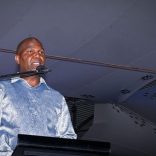
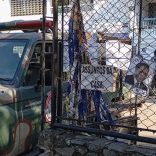
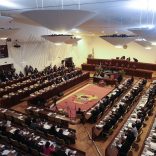
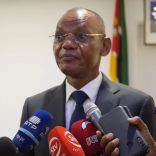
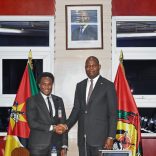





Leave a Reply
Be the First to Comment!
You must be logged in to post a comment.
You must be logged in to post a comment.